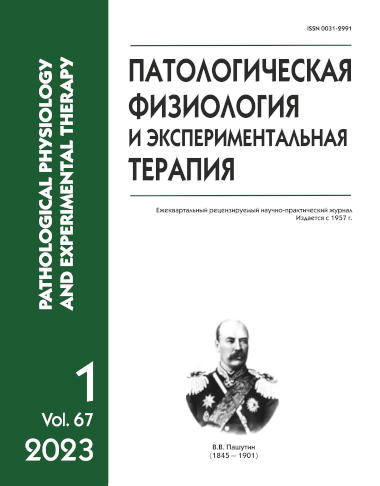Effect of intravenous administration of the proinflammatory cytokine IL-1β on the chemoreceptor control of respiration
Abstract
Interleukin-1 beta (IL-1β) plays a leading role in inducing cytokine storm, since it is the key cytokine that is responsible for the development of the proinflammatory activity in lung injury. Aim. To study the mechanisms of the effect of IL-1β on the chemoreceptor control of respiration. To achieve that, the ventilatory response to hypoxia in the presence of increased blood concentration of IL-1β was compared with the hypoxic response in the presence of a combination of IL-1β and diclofenac, an inhibitor of cyclooxygenase activity. Methods. The study was performed on 32 anesthetized and tracheostomized, spontaneously breathing rats. Respiratory parameters were recorded with a pneumotachograph. To assess the hypoxic ventilatory response, the rebreathing technique was used. Results. The intravenous administration of IL-1β induced a significant decrease in the ventilatory response to hypoxic stimulation, thereby weakening the compensatory capabilities of the respiratory system. The inhibition of the cyclooxygenase activity abolished the effect of IL-1β on the hypoxic ventilatory response. Conclusion. The study suggests that the activation of the cyclooxygenase pathways is one of the main mechanisms of the effect of proinflammatory cytokines on the reflex control of breathing.






